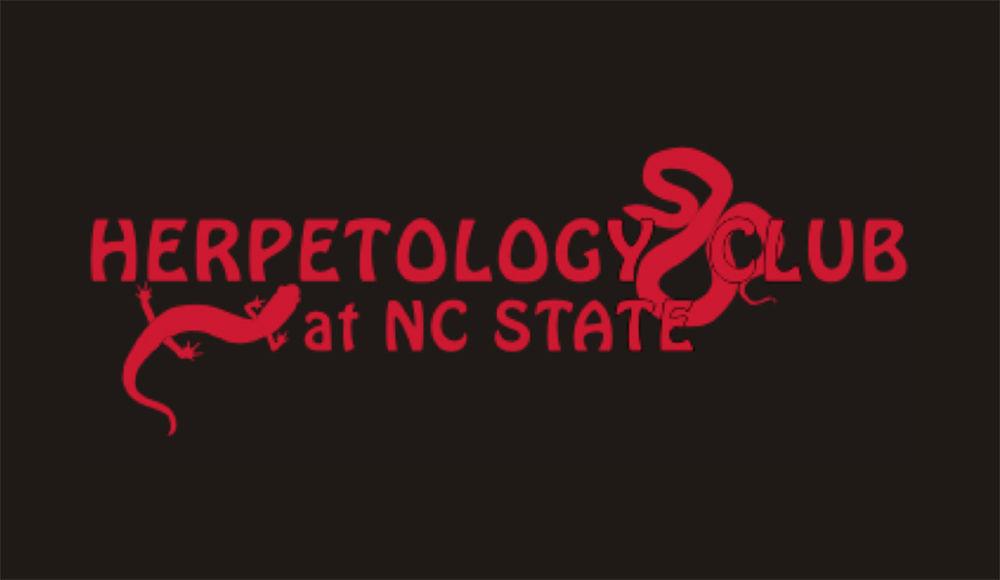Both in and around Raleigh, wildlife of all sorts scurry about while scientists and enthusiasts alike study the different species in our environment. This particular club, through both field research and outreach, seeks to learn about and spread their knowledge about a more selective set of our ecosystem’s creatures: reptiles and amphibians.
Herpetology Club at NC State is a group of students with a love for reptiles and amphibians. The club, founded in 2002, meets every other Thursday at 7:30 p.m. in room 101 of David Clark Labs, with their next meeting taking place on Sept. 11.
Rebekah Wofford, a third-year studying zoology and the group’s current secretary, spoke about the main focuses of Herpetology Club.
“We have three main focuses,” Wofford said. “The first one is our meetings, where we have scientists and researchers come in and talk about their work. We’ve had a lot of really well-known North Carolina herpetologists come in and talk about the research and the conservation stuff that they do. We also focus a lot on trips. We do local ones and we also do a spring break trip, where we go to south Florida and we do something called “herping,” where we just go out and look for animals to see what kids of biodiversity we can find.”
Edward Landi, a fourth-year studying fisheries, wildlife and conservation biology, and the current president of the Herpetology Club at NC State, spoke about what occurs at a typical meeting for the group.
“At our meetings, we will normally have a guest speaker who comes to talk about their research,” Landi said. “We also teach our members about identification of local reptile and amphibian species as well.”
At their next meeting, the group will be bringing in Maya Marin, a fourth-year studying science education and the club’s outreach coordinator, to speak about the biodiversity in Chapel Hill’s Brumley Forest.
In addition to speakers and field research, Wofford also mentioned that another of the group’s focuses was education and outreach.
“We also have a really big focus on education,” Wofford said. “We do a lot of outreach, such as campus events, and we also go to a lot of elementary schools and museum events. We take our personal reptiles and amphibians with us, and help to teach people about them.”
The group will be participating in the Piedmont Wildlife Center’s upcoming Mini BioBlitz, a free event to be held on Thursday, Sept. 6 from 5:30 to 8:30 p.m. at the center.
“This particular event is a Mini BioBlitz,” Wofford said. “A BioBlitz in general is typically held at a particular location, ours [is] being held at the Piedmont Wildlife Center, and it’s basically where people come out to go on hikes and just look for every living organism they can find and try to identify it. It’s sort of like a citizen science project where people can find out about the biodiversity in this specific area. We’ll just be doing the herpetology part of the Mini BioBlitz. We’re going to have a table where we’ll talk to people about reptiles and amphibians.”
Each year, the group typically takes a trip down to southern Florida, which Landi said is a good way for members of the group to get to know each other while doing something they all enjoy.
“The Florida trip is always really fun because you can get to know everyone really well,” Landi said. “When I was a freshman, it was really important for me to meet new people, and herpetology club is how I did that. It’s a really specific interest but it’s pretty cool because it draws from all around NC State, and I met all of these really cool people who are now some of my best friends.”
Going forward, Landi would like to see the group engage in more outreach with the local community.
“I’d like to see us do more outreach and be more involved with that,” Landi said. “I feel like there’s a lot to be done with educating people, especially with this fear that society has built around snakes and such, there’s just a lot of education that can be done. I think Herpetology Club is a good group for that since we’re a young group of students who are really knowledgeable [about herpetology].”













